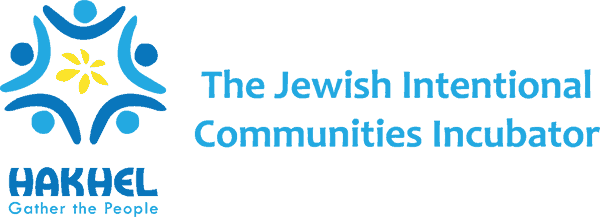by Leah Palmer, Hakhel Administrative Director

I generally start cleaning for Pesach around January time, much to the displeasure of those living with me. The cleaning takes the form of taking everything out of the cupboard, cleaning up any dust and crumbs, then putting everything back at right angles to each other. Frankly, I’m not that fussed if it’s accessible or not, just so long as it is tidy. I know that schmutz is not Chametz (leavened products prohibited at Pesach), but the cleaning is a ritual that I really enjoy. It’s a time of year where people ask me a lot “Where did you put the…” and I normally don’t know, because I’m not really paying attention to what I’m putting back in the cupboards, but more the fact that there won’t be any crumbs leftover.
And like pretty much everything in all of our lives right now, that’s changed this year. With childcare canceled, I’ve become a full-time homeschooling Mom for two hyperactive toddlers and I’m constantly looking for things to do with them. So as I’m cleaning, I’m going through every shelf, thinking about what can be repurposed to make a toy, what can be the focus of tomorrow’s lesson with them and what wonders had I squirreled away for a rainy day.
I’ve discovered all kinds of knick-knacks, and even the everyday items like tins and string I’m thinking about more creatively.
I don’t always believe that there is a message about current affairs in the weekly Torah reading but this week the portion is “Vayakhel-Pekudei”- Vayakhel meaning “gather together” and Pekudei meaning counting, so it’s hard to think of a more pertinent reading for the week.
From this week’s reading, we learn the laws of Shabbat, specifically that the labor which is prohibited on Shabbat is “Malechet Machshevet”, which means creative, or thoughtful, work. These are the various types of labor that were needed to build the Mishkan, the portable Temple which the Jews carried with them during their years of wandering on the way to Israel.
The Biblical commandment against working on Shabbat says, that if you take two stones and make a wall, that’s forbidden, but if you mindlessly put a stone down on top of another one because it was too heavy to hold, or because you were tidying up, that’s not considered labor on Shabbat. Whilst the result is the same, you didn’t put any thought into what your work or what the materials at hand could be used to make. You were more interested in the action you were doing (putting something down) than the result (making a wall). And the conclusion is that you’re not going to manage to build the Mishkan that way.
Which brings me back to my Pesach cleaning this year. We’ve got a unique opportunity to engage in creative, Mishkan building work right now. We’re forced to consider what we have and use it thoughtfully, whether its toys in the cupboards or tins in the pantry. And as I clean the house it becomes abundantly clear that Malechet Machshevet isn’t just something to think about on Shabbat. Malechet Machshevet means acting with a purpose, being aware of what we are doing and not squandering resources. If it’s choosing to cook a certain meal because I have ingredients that are close to expiring, and I’m trying to hold out as long as possible before I have to make a trip to the store. Or maybe being more thoughtful about what garbage gets thrown out, and what can be repurposed or recycled into a game for the kids. I’m hopeful that the days of home-quarantine will provide an opportunity for us to develop our Malechet Machshevet muscle, and to God willing emerge on the other side with a greater appreciation of what we have, and a more developed ability to use our resources, be it those in our homes or the natural world, in a more thoughtful, creative and ultimately responsible way.
Learn more about Hakhel – the first-of-its-kind Jewish Intentional Communities Incubator

